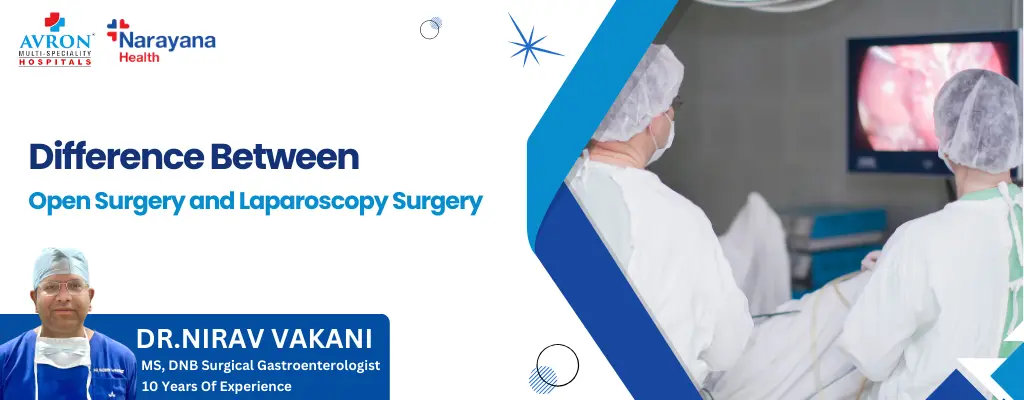When it comes to surgical operations, patients often have two options: open surgery or laparoscopic surgery. Understanding the differences between these approaches is necessary for making smart healthcare decisions.
What is Open surgery?
Open surgery is the standard way of accessing the target area through a single, large incision. This technique gives surgeons a direct and complete view of the surgical site, allowing for hands-on access to organs and tissues. Because of the wider incision, open surgery may result in more visible scarring and a longer healing time.
What is Laparoscopic surgery?
Laparoscopic surgery, often known as minimally invasive surgery, involves many small incisions through which specialized instruments and a camera (laparoscope) are placed. The laparoscope generates images to a monitor, which guides the surgeon through the process. This approach often results in less scars, less postoperative pain, and faster recovery to normal activities.
In which gastrointestinal (GI) condition open surgery is required?
Open surgery is often used for gastrointestinal (GI) disorders where less invasive procedures may not be appropriate or effective. The complexity of the problem, the requirement for wide access to the affected area, and the patient’s overall health status all play a role in the choice for performing open surgery.
- Complex or Advanced GI Cancers: When dealing with massive, invasive, or difficult-to-reach gastrointestinal cancers, open surgery provides surgeons with improved visibility and access for successful removal.
- Severe Inflammatory Bowel Disease (IBD): Diseases such as Crohn’s disease or ulcerative colitis, which can cause strictures, fistulas, or perforations, may necessitate open surgery for treatment.
- Puncture Bowel: A punctured bowel is a medical emergency that requires rapid surgical repair to avoid infection.
- Extensive Attachment: Extensive internal scar tissue from previous surgeries or infections may necessitate open surgery for proper navigation and therapy.
- Complex Hernias: Complex hernias, such as those that are large, recurrent, or involve extensive tissue, may necessitate open surgery for optimal treatment.
- Severe Trauma: In emergency scenarios involving abdominal trauma, open surgery is frequently required to rapidly assess and repair gastrointestinal organ damage.
In which gastrointestinal (GI) condition Laparoscopic (minimal invasive) surgery is required?
Minimally invasive surgery such as laparoscopic operations, is frequently performed to treat different gastrointestinal (GI) problems, including:
- Gallbladder Disorders: Problems such as gallstones usually require gallbladder removal, which is ideally suited to minimally invasive procedures.
- Gastroesophageal Reflux Disease (GERD): Severe instances may demand surgical intervention, which can be accomplished with minimally invasive techniques.
- Benign Colorectal Diseases: Conditions like diverticulitis and benign cancers can frequently be addressed with less invasive surgery.
- Bariatric Surgery: Weight-loss operations, such as gastric bypass and sleeve gastrectomy, are usually performed with minimally invasive techniques.
- Appendicitis: The appendix can often be removed laparoscopically, minimizing recovery time and hospital stay.
- Hernias: Some hernias, such as abdominal or uterine hernias, can be treated with less invasive procedures.
The acceptability of open surgery and laparoscopic surgery (minimally invasive) is decided by the person’s condition, its severity, and the patient’s overall health.
If you’re seeking the best gastroenterologist in Ahmedabad, Dr. Nirav Vakani is a great choice. With over 12+ years of experience, he specializes in both open and laparoscopic surgeries, focusing on advanced laparoscopic procedures and gastrointestinal oncosurgery. Dr. Vakani practices at Narayana Multispeciality Hospital in Ahmedabad, a leading hospital known for its modern technology and high standards of care. He is also associated with Avron Hospitals Pvt. Ltd., recognized for its advanced medical facilities.




